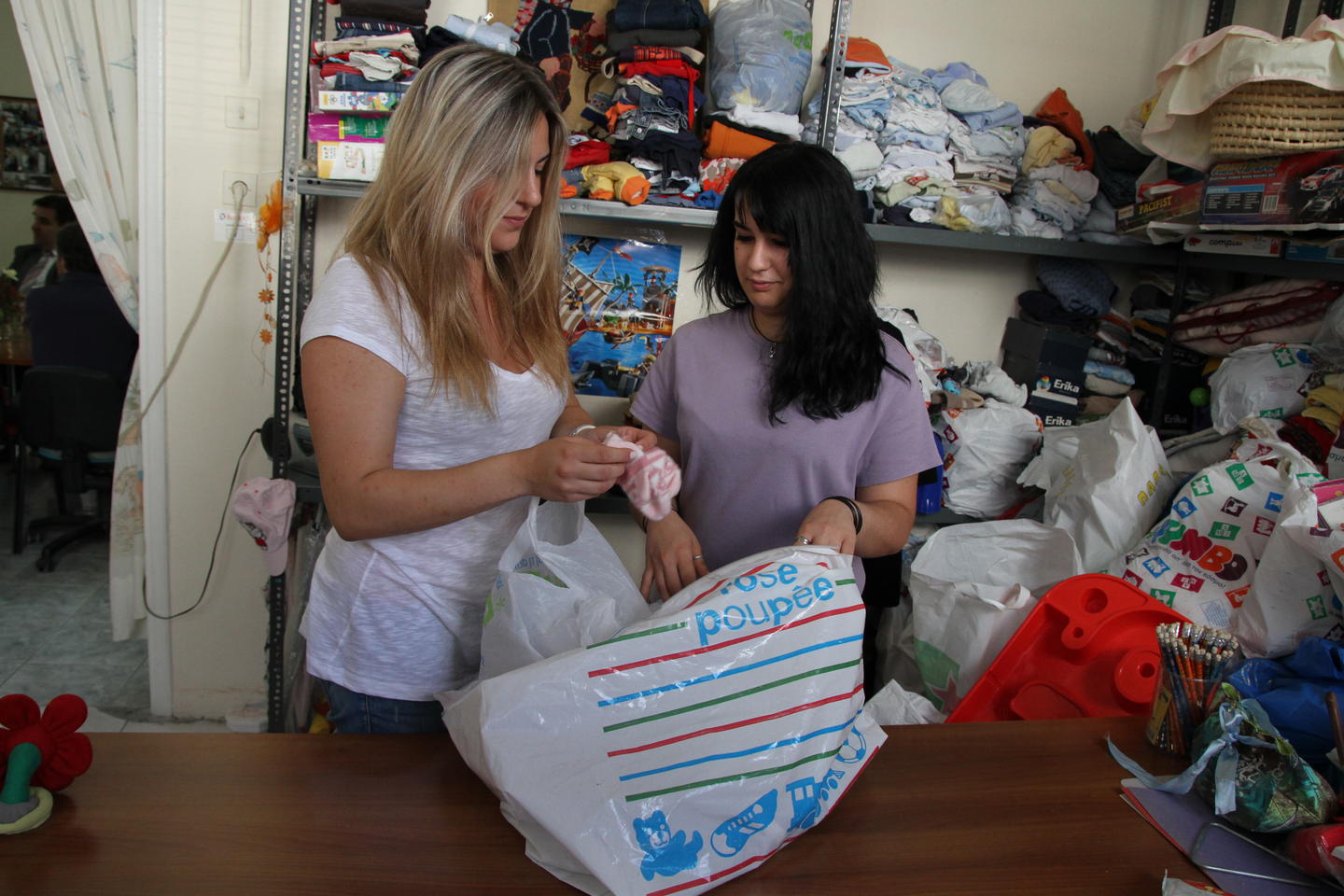The money will be used in part for food banks and health services.
“The economic crisis in Greece has hit many families very hard. I am pleased that we have agreed with the Greek authorities to set aside a portion of the EEA and Norway Grants for emergency measures to help the poor and the homeless,” said Ingvild Stub, State Secretary responsible for EU and EEA affairs in Norway, one of the three donors of the EEA and Norway Grants.
According to new figures from Eurostat, Greece is now the country in the EU where the risk of falling into poverty is greatest. In 2012 every fourth person in Greece (23.1 % of the population) had an income that was below the country’s official poverty line.[1] This means that there are about 2.4 million people living below the poverty threshold, among them 500 000 children. The unemployment rate has climbed above 27 %.
The need for help is most acute in and around Athens. There has also been a sharp increase in the numbers of drug abusers and persons infected with HIV. The donors and Greece have agreed to give priority to the poor and the homeless in the capital city. A total of €5.265 million will be allocated for various measures, including:
1) Solidarity centre in Athens (€1.96 million)
A project under the auspices of the municipality of Athens. Currently provides help to 3 500 families (about 14 000 residents) in the form of food, clothing and hygiene products. Support from the Grants will make it possible for the municipality to continue this project. In addition, a mobile team of health personnel will be established to seek out the homeless and drug abusers and offer them shelter and medical assistance. The municipality of Athens will also receive funding for awareness-raising campaigns to encourage more people to contribute to this work of the solidarity centre, and thus make it possible for even more people to get help.
2) Solidarity Now (€1.76 million)
In connection with the solidarity house in Athens, the Open Society Foundation is establishing a centre that will offer health services, legal advice and jobseeker assistance for the poor and unemployed. The funding will be used to renovate the premises, as well as to finance some of the activities at the centre.
“I am deeply grateful that Iceland, Liechtenstein and Norway has chosen to cooperate directly with the municipality of Athens, and that we together can support and help thousands of people in need. Through this cooperative effort, the people of these three countries are expressing their solidarity with the people in Athens who need this support the most,” said Mr Giorgos Kaminis, mayor of the Greek capital.
An estimated 40 000 residents of Athens will receive assistance through these projects. Moreover, funding for NGOs that help the poor and homeless throughout Greece will be increased by €1 million. The invitation to apply for these funds will be announced in January as part of a major NGO programme in Greece financed by the EEA Grants. Follow new calls for proposals on our website.
Greece will receive a total of € 63.4 million through the Grants during the current period. The money now being allocated is taken from a reserve and funds carried over from the previous period.
Read more about the Grants in Greece on www.eeagrants.org/greece
Through the EEA and Norway Grants, Iceland, Liechtenstein and Norway contributes to reducing economic and social disparities and strengthening bilateral relations with 16 EU countries.
[1]http://epp.eurostat.ec.europa.eu/statistics_explained/index.php/People_at_risk_of_poverty_or_social_exclusion
